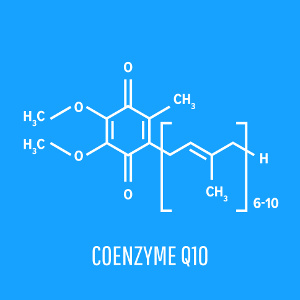| 1 x afterRenderRawModule mod_tags_popular (Search) (42.34KB) (30.14%) | 46.66ms |
| 1 x afterRenderRawModule mod_articles_category (READ MORE...) (6.8KB) (23.59%) | 36.51ms |
| 1 x afterRenderComponent com_tags (1.54MB) (15.59%) | 24.14ms |
| 1 x afterInitialise (1.28MB) (9.28%) | 14.36ms |
| 1 x afterRender (292.89KB) (3.39%) | 5.24ms |
| 1 x beforeRenderRawModule mod_articles_category (READ MORE...) (440.48KB) (2.98%) | 4.62ms |
| 1 x afterRoute (840.02KB) (2.52%) | 3.90ms |
| 1 x beforeRenderRawModule mod_custom (Chronic fatigue tied Alan to his bed but Q10 capsules saved him:) (244.28KB) (1.33%) | 2.06ms |
| 1 x afterLoad (456.41KB) (1.15%) | 1.78ms |
| 1 x afterRenderRawModule mod_finder () (128.59KB) (1.06%) | 1.63ms |
| 1 x afterRenderRawModule mod_languages (Sprogskift) (27.89KB) (0.96%) | 1.48ms |
| 1 x afterRenderRawModule mod_menu (Main Menu - English) (186.95KB) (0.91%) | 1.41ms |
| 1 x afterDispatch (27.45KB) (0.84%) | 1.30ms |
| 1 x afterRenderRawModule mod_custom () (22.66KB) (0.55%) | 857μs |
| 1 x afterRenderRawModule mod_menu (Main Menu - English) (6.3KB) (0.49%) | 757μs |
| 1 x beforeRenderRawModule mod_menu (Main Menu - English) (29.14KB) (0.44%) | 685μs |
| 1 x afterRenderRawModule mod_languages (Sprogskift Mobil) (3.89KB) (0.41%) | 638μs |
| 1 x After Access::preloadComponents (all components) (103.05KB) (0.39%) | 602μs |
| 1 x afterRenderRawModule mod_finder () (6.29KB) (0.34%) | 527μs |
| 1 x afterRenderRawModule mod_menu (Are you getting enough vitamins and minerals?) (22.39KB) (0.33%) | 513μs |
| 1 x Before Access::preloadComponents (all components) (50.9KB) (0.24%) | 367μs |
| 1 x beforeRenderModule mod_articles_category (READ MORE...) (20.82KB) (0.22%) | 340μs |
| 1 x afterRenderRawModule mod_menu (The key to increased well-being) (17.83KB) (0.18%) | 284μs |
| 1 x afterRenderRawModule mod_menu (Did you know.....) (25.52KB) (0.18%) | 277μs |
| 1 x beforeRenderComponent com_tags (20.62KB) (0.16%) | 251μs |
| 1 x beforeRenderRawModule mod_custom () (8.66KB) (0.12%) | 190μs |
| 1 x afterRenderRawModule mod_custom (BOOST YOUR IMMUNE DEFENSE) (3.8KB) (0.11%) | 167μs |
| 1 x beforeRenderRawModule mod_custom () (6.62KB) (0.09%) | 145μs |
| 1 x afterRenderRawModule mod_custom () (904B) (0.09%) | 137μs |
| 1 x beforeRenderRawModule mod_menu (Main Menu - English) (5.07KB) (0.07%) | 105μs |
| 1 x beforeRenderRawModule mod_custom () (688B) (0.06%) | 100μs |
| 1 x afterRenderRawModule mod_custom () (896B) (0.06%) | 98μs |
| 1 x afterRenderModule mod_custom (Chronic fatigue tied Alan to his bed but Q10 capsules saved him:) (1.3KB) (0.04%) | 61μs |
| 1 x afterRenderModule mod_menu (Main Menu - English) (4.86KB) (0.04%) | 55μs |
| 1 x afterRenderModule mod_custom () (1.23KB) (0.03%) | 52μs |
| 1 x afterRenderRawModule mod_custom (Get additionel and more detailed knowledge ) (1.55KB) (0.03%) | 49μs |
| 1 x afterRenderRawModule mod_custom (Useful Links) (1.02KB) (0.03%) | 49μs |
| 1 x afterRenderModule mod_finder () (1.23KB) (0.03%) | 47μs |
| 1 x afterRenderModule mod_menu (Main Menu - English) (1.25KB) (0.03%) | 46μs |
| 1 x afterRenderModule mod_articles_category (READ MORE...) (1.25KB) (0.03%) | 44μs |
| 1 x afterRenderRawModule mod_custom (Chronic fatigue tied Alan to his bed but Q10 capsules saved him:) (1.06KB) (0.03%) | 41μs |
| 1 x afterRenderModule mod_languages (Sprogskift Mobil) (1.27KB) (0.03%) | 40μs |
| 1 x After Access::getAssetRules (id:8 name:com_content) (7.05KB) (0.02%) | 38μs |
| 1 x afterRenderModule mod_finder () (3.29KB) (0.02%) | 34μs |
| 1 x afterRenderModule mod_custom (Cholesterol-lowering without side effects:) (1.28KB) (0.02%) | 30μs |
| 1 x beforeRenderRawModule mod_custom (Get additionel and more detailed knowledge ) (816B) (0.02%) | 28μs |
| 1 x beforeRenderRawModule mod_custom (BOOST YOUR IMMUNE DEFENSE) (6.45KB) (0.02%) | 28μs |
| 1 x afterRenderModule mod_custom (BOOST YOUR IMMUNE DEFENSE) (1.28KB) (0.02%) | 26μs |
| 1 x afterRenderModule mod_custom () (2.43KB) (0.02%) | 25μs |
| 1 x afterRenderRawModule mod_custom (Overview of vitamins, minerals, and essential fatty acids) (960B) (0.01%) | 23μs |
| 1 x afterRenderRawModule mod_custom (Cholesterol-lowering without side effects:) (1.06KB) (0.01%) | 23μs |
| 1 x afterRenderModule mod_languages (Sprogskift) (5.31KB) (0.01%) | 22μs |
| 1 x afterRenderModule mod_tags_popular (Search) (1.27KB) (0.01%) | 22μs |
| 1 x afterRenderModule mod_custom () (2.71KB) (0.01%) | 22μs |
| 1 x beforeRenderRawModule mod_menu (The key to increased well-being) (736B) (0.01%) | 21μs |
| 1 x afterRenderModule mod_custom (Overview of vitamins, minerals, and essential fatty acids) (1.31KB) (0.01%) | 21μs |
| 1 x afterRenderModule mod_custom (Check this before you buy a Q10 product) (1.28KB) (0.01%) | 21μs |
| 1 x afterRenderModule mod_menu (Did you know.....) (1.27KB) (0.01%) | 21μs |
| 1 x afterRenderModule mod_custom (Useful Links) (1.27KB) (0.01%) | 21μs |
| 1 x afterRenderModule mod_custom (Get additionel and more detailed knowledge ) (1.3KB) (0.01%) | 20μs |
| 1 x afterRenderModule mod_custom (Q10 goes by many names) (1.27KB) (0.01%) | 20μs |
| 1 x afterRenderModule mod_custom (Are you taking supplements) (1.28KB) (0.01%) | 20μs |
| 1 x afterRenderModule mod_custom (Weight loss that works) (1.27KB) (0.01%) | 20μs |
| 1 x afterRenderModule mod_custom (Antiaging) (3.77KB) (0.01%) | 20μs |
| 1 x afterRenderModule mod_menu (Are you getting enough vitamins and minerals?) (1.3KB) (0.01%) | 20μs |
| 1 x afterRenderModule mod_menu (The key to increased well-being) (1.28KB) (0.01%) | 20μs |
| 1 x afterRenderRawModule mod_custom (Q10 goes by many names) (928B) (0.01%) | 19μs |
| 1 x afterRenderRawModule mod_custom (Are you taking supplements) (1.03KB) (0.01%) | 18μs |
| 1 x afterRenderRawModule mod_custom (Antiaging) (912B) (0.01%) | 18μs |
| 1 x afterRenderRawModule mod_custom (Check this before you buy a Q10 product) (944B) (0.01%) | 17μs |
| 1 x afterRenderRawModule mod_custom (Weight loss that works) (1.03KB) (0.01%) | 17μs |
| 1 x beforeRenderRawModule mod_menu (Did you know.....) (720B) (0.01%) | 17μs |
| 1 x beforeRenderRawModule mod_languages (Sprogskift) (3.94KB) (0.01%) | 17μs |
| 1 x beforeRenderRawModule mod_languages (Sprogskift Mobil) (912B) (0.01%) | 17μs |
| 1 x Before Access::getAssetRules (id:8 name:com_content) (840B) (0.01%) | 16μs |
| 1 x beforeRenderRawModule mod_tags_popular (Search) (2.36KB) (0.01%) | 15μs |
| 1 x beforeRenderRawModule mod_custom (Useful Links) (1.06KB) (0.01%) | 13μs |
| 1 x beforeRenderRawModule mod_custom (Cholesterol-lowering without side effects:) (368B) (0.01%) | 13μs |
| 1 x beforeRenderModule mod_custom (BOOST YOUR IMMUNE DEFENSE) (6.81KB) (0.01%) | 13μs |
| 1 x beforeRenderRawModule mod_custom (Overview of vitamins, minerals, and essential fatty acids) (768B) (0.01%) | 11μs |
| 3 x beforeRenderModule mod_custom () (704B) (0.01%) | 11μs |
| 1 x beforeRenderRawModule mod_menu (Are you getting enough vitamins and minerals?) (2.5KB) (0.01%) | 11μs |
| 1 x beforeRenderModule mod_tags_popular (Search) (1.98KB) (0.01%) | 11μs |
| 1 x beforeRenderModule mod_menu (Are you getting enough vitamins and minerals?) (2.13KB) (0.01%) | 11μs |
| 1 x beforeRenderRawModule mod_finder () (6.34KB) (0.01%) | 11μs |
| 1 x beforeRenderRawModule mod_custom (Q10 goes by many names) (608B) (0.01%) | 10μs |
| 1 x beforeRenderModule mod_custom (Get additionel and more detailed knowledge ) (1.17KB) (0.01%) | 10μs |
| 1 x beforeRenderModule mod_menu (The key to increased well-being) (352B) (0.01%) | 10μs |
| 1 x beforeRenderModule mod_menu (Did you know.....) (336B) (0.01%) | 10μs |
| 2 x beforeRenderModule mod_finder () (704B) (0.01%) | 10μs |
| 1 x beforeRenderRawModule mod_custom (Antiaging) (720B) (0.01%) | 9μs |
| 1 x beforeRenderModule mod_custom (Overview of vitamins, minerals, and essential fatty acids) (384B) (0.01%) | 9μs |
| 1 x beforeRenderModule mod_custom (Check this before you buy a Q10 product) (352B) (0.01%) | 9μs |
| 1 x beforeRenderModule mod_custom (Are you taking supplements) (352B) (0.01%) | 9μs |
| 1 x beforeRenderModule mod_custom (Useful Links) (1.44KB) (0.01%) | 9μs |
| 2 x beforeRenderModule mod_menu (Main Menu - English) (720B) (0.01%) | 9μs |
| 1 x beforeRenderRawModule mod_finder () (2.3KB) (0.01%) | 9μs |
| 1 x beforeRenderRawModule mod_custom (Check this before you buy a Q10 product) (752B) (0.01%) | 9μs |
| 1 x beforeRenderRawModule mod_custom (Are you taking supplements) (736B) (0.01%) | 9μs |
| 1 x beforeRenderModule mod_custom (Q10 goes by many names) (208B) (0.01%) | 9μs |
| 1 x beforeRenderModule mod_custom (Antiaging) (336B) (0.01%) | 8μs |
| 1 x beforeRenderRawModule mod_custom (Weight loss that works) (736B) (0.01%) | 8μs |
| 1 x beforeRenderModule mod_custom (Weight loss that works) (336B) (0.01%) | 8μs |
| 1 x beforeRenderModule mod_languages (Sprogskift) (720B) (0%) | 5μs |
| 1 x beforeRenderModule mod_custom (Chronic fatigue tied Alan to his bed but Q10 capsules saved him:) (768B) (0%) | 4μs |
| 1 x beforeRenderModule mod_languages (Sprogskift Mobil) (720B) (0%) | 3μs |
| 1 x beforeRenderModule mod_custom (Cholesterol-lowering without side effects:) (752B) (0%) | 2μs |
 Infertility affects around one in seven couples. WHO considers it a global health problem. One of the leading causes is impaired semen quality, and Danish, Norwegian, and German men have lower sperm quality than any other male populations. Impaired sperm quality may be a result of an unhealthy lifestyle with stress, tobacco, stimulants, and hormone-disrupting compounds. On the other hand, scientists from Mexico have found that supplements of zinc, selenium, Q10, and omega-3 have an effect on the number of sperm cells and their quality. Other studies show that zinc and selenium protect sperm cells and are important for testosterone levels.
Infertility affects around one in seven couples. WHO considers it a global health problem. One of the leading causes is impaired semen quality, and Danish, Norwegian, and German men have lower sperm quality than any other male populations. Impaired sperm quality may be a result of an unhealthy lifestyle with stress, tobacco, stimulants, and hormone-disrupting compounds. On the other hand, scientists from Mexico have found that supplements of zinc, selenium, Q10, and omega-3 have an effect on the number of sperm cells and their quality. Other studies show that zinc and selenium protect sperm cells and are important for testosterone levels.







 Many young men have poor sperm quality and the underlying cause is often unknown. The health of sperm cells depends a lot on
Many young men have poor sperm quality and the underlying cause is often unknown. The health of sperm cells depends a lot on  Approximately one in seven couple is childless. Although there can be many underlying causes, poor sperm quality is an increasing problem. It may be caused by a lack of certain nutrients and exposure to different environmental factors, but, fortunately, it possible to improve sperm quality and increase the chances of conception by means of relevant dietary adjustments and the use of specific supplements. New research shows that epigenetic factors (factors that affect the environment of the sperm cell) determine sperm health and are therefore crucial for activating the genes of the sperm cell so the fetus can develop.
Approximately one in seven couple is childless. Although there can be many underlying causes, poor sperm quality is an increasing problem. It may be caused by a lack of certain nutrients and exposure to different environmental factors, but, fortunately, it possible to improve sperm quality and increase the chances of conception by means of relevant dietary adjustments and the use of specific supplements. New research shows that epigenetic factors (factors that affect the environment of the sperm cell) determine sperm health and are therefore crucial for activating the genes of the sperm cell so the fetus can develop.

 Selenium is a trace element that is found in all the cells of the body. An adult contains around 10-15 mg of selenium with the largest concentrations being found in the liver, kidneys, thyroid gland, sexual gland (gonads), and semen. Selenium supports over 30 different selenoproteins that have a number of different functions. Among these are five glutathione peroxidases (GSH-Px) that function as antioxidants, and three deiodinases that regulate the metabolism. Of all minerals, selenium is the one that holds the greatest antioxidant potential. It works in close collaboration with vitamin E to prevent oxidative damage to cell membranes, lipids, and DNA. Selenium and sulfur bear great chemical resemblances, but sulfur is not an antioxidant and has other functions in the body.
Selenium is a trace element that is found in all the cells of the body. An adult contains around 10-15 mg of selenium with the largest concentrations being found in the liver, kidneys, thyroid gland, sexual gland (gonads), and semen. Selenium supports over 30 different selenoproteins that have a number of different functions. Among these are five glutathione peroxidases (GSH-Px) that function as antioxidants, and three deiodinases that regulate the metabolism. Of all minerals, selenium is the one that holds the greatest antioxidant potential. It works in close collaboration with vitamin E to prevent oxidative damage to cell membranes, lipids, and DNA. Selenium and sulfur bear great chemical resemblances, but sulfur is not an antioxidant and has other functions in the body. An international team of researchers has just completed a huge study of the possible link between maternal DNA,
An international team of researchers has just completed a huge study of the possible link between maternal DNA, 

 Poor sperm quality, which is a bit of a taboo, is one of the main causes of involuntary infertility. Evidence suggests that Western diets can impair sperm quality, whereas the Mediterranean diet does the opposite. Vegan diets are somewhat controversial, according to a review article published in International Journal of Molecular Sciences. Previous research has shown that supplementation with selenium, zinc, fish oil, and coenzyme Q10 can improve sperm cell quality.
Poor sperm quality, which is a bit of a taboo, is one of the main causes of involuntary infertility. Evidence suggests that Western diets can impair sperm quality, whereas the Mediterranean diet does the opposite. Vegan diets are somewhat controversial, according to a review article published in International Journal of Molecular Sciences. Previous research has shown that supplementation with selenium, zinc, fish oil, and coenzyme Q10 can improve sperm cell quality. In May 2017, new data linking
In May 2017, new data linking  "After about one week of taking the Q10 supplement I could feel a huge difference," says 23-year old Alan Piccini, who has been suffering from extreme fatigue and muscle aches ever since he was a child.
"After about one week of taking the Q10 supplement I could feel a huge difference," says 23-year old Alan Piccini, who has been suffering from extreme fatigue and muscle aches ever since he was a child. “Taking capsules with co-enzyme Q10 has freed me of the severe side effects of my cholesterol lowering medicine,” Mrs Franken explains.
“Taking capsules with co-enzyme Q10 has freed me of the severe side effects of my cholesterol lowering medicine,” Mrs Franken explains.